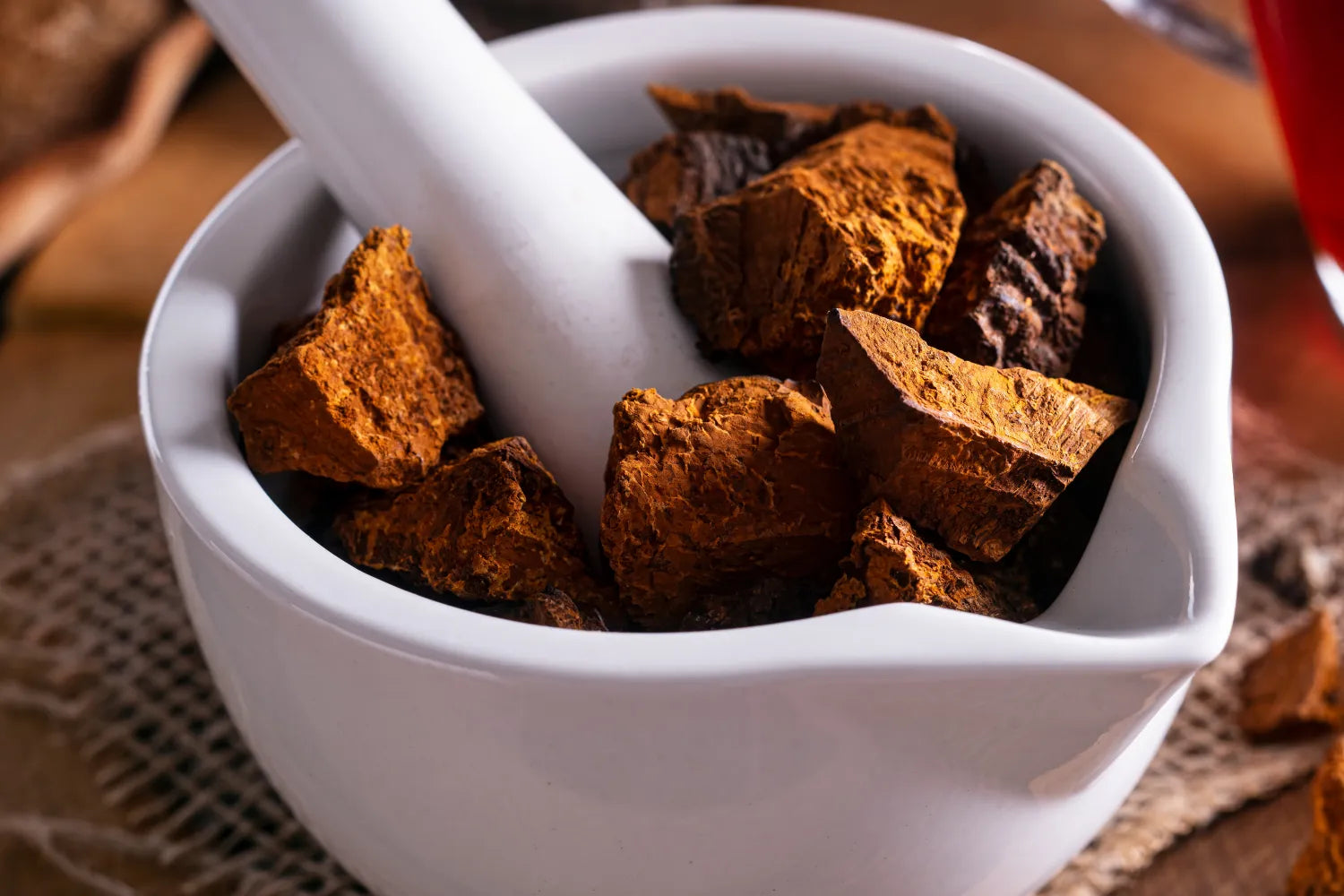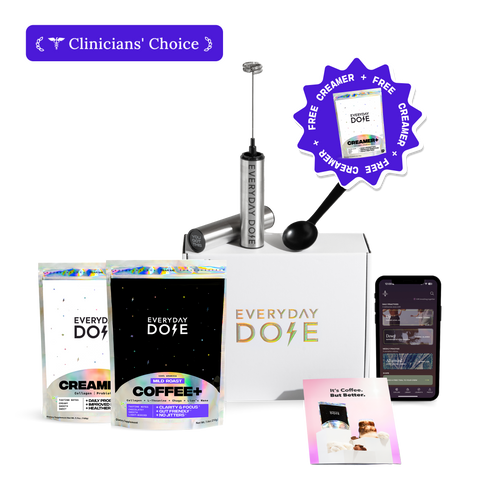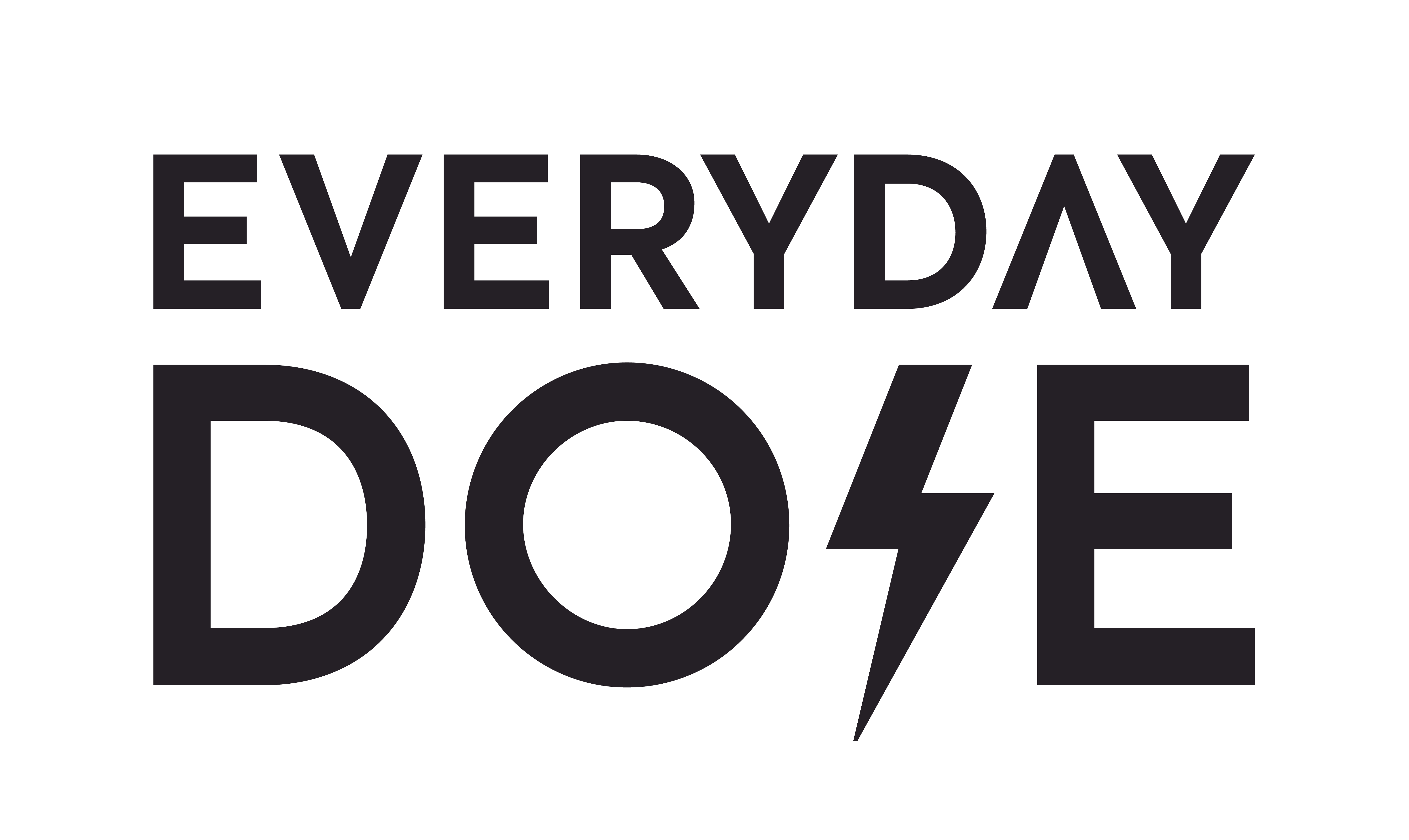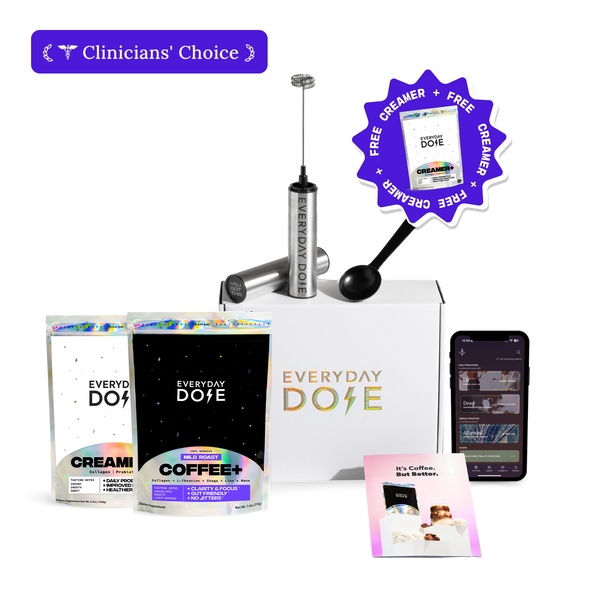How Much Is Chaga Worth? Why We Love This Ingredient

Have you ever stopped to think about how much the things you love are really worth? Most things have two values: the amount they could sell for and how much they’re worth to you individually. Something might not sell for much, but if it’s sentimental or greatly improves your life, then it’s worth its weight in gold!
Chaga is a popular supplement that can have crazy benefits. But what is it worth, and does its price match up with its value? Read on as we reveal how much chaga is worth, what its benefits are, and how you can take it.
What Is Chaga?
Chaga (Inonotus obliquus) is a mushroom that naturally grows in cold climates — think of the northern United States, Canada, Russia, and Siberia. This mushroom prefers to grow on hardwood trees, especially birch trees.
When you see a chaga mushroom, you might not initially realize it’s a mushroom, especially if you’re looking for the characteristic stalk, cap, and gills of a normal mushroom. Instead, chaga looks like a lumpy, round growth with a rough black or dark brown exterior.
Inside, chaga has swirls of orange, yellow, and brown. Chaga mushrooms are usually harvested in the winter when the trees are bare and it’s easier to see them.
The Tradition of Chaga
To understand the worth of chaga, it’s important to first understand how it’s been used throughout history. There are plenty of stories of chaga being used as far back as two and even three thousand years ago. However, these stories are pretty vague and their accuracy is a subject that’s hotly debated.
One of the earliest historical clues we have comes from the 1940s, when chaga “coffee” was sold as a coffee substitute in Finland. This wasn’t because of chaga’s benefits, but rather because its bitter taste made it a popular coffee alternative. This bitterness is a huge reason why chaga is mostly used as a tea or drink, although it is technically edible.
That said, there is evidence that chaga was a huge part of folk medicine in the Soviet Union around that time. Chaga harvesting was a massive operation, and chaga became an integral part of many healing regimens and medicines. Once the USSR fell in 1991, chaga quickly became a global favorite.
How Much Is Chaga Worth?
Like all things, the monetary value of chaga is based on supply and demand. In its natural habitat, chaga is pretty uncommon — although a tree can host the chaga fungus, the actual chaga mushroom only forms under very specific conditions.
Some sources claim that chaga only grows on as few as one out of 4,000 birch trees, although this number may be getting lower as more and more deforestation occurs. On top of that, chaga can take up to 15 years to mature, which makes it hard to replace on demand.
All of this means when it comes to the market, chaga is one of the most valuable mushrooms. One pound of wild-foraged chaga can sell for $25 to $70, depending on where it was harvested from.
Let’s look at the other side of the equation, though. How much is chaga worth to us as individuals?
Because of the benefits of chaga (which we’ll discuss in just a minute), chaga can help us stay healthy for the long term. Most people highly value feeling healthy, especially during seasons when it’s easy to get sick. On another note, if you generally stay healthy, you’re less likely to spend money on doctor’s visits and medications. In a sense, you’re actually saving money!
What Are the Benefits of Chaga?
How can chaga support your health, exactly? Here’s a breakdown of the benefits you can expect.
- Supports Immunity: Chaga can support the production of cytokines, which are vital for a healthy immune response.
- Provides Antioxidants: Chaga contains some exceptionally powerful antioxidants, which can support long-term health.
- Supports Hair, Skin, and Nail Health: These mushrooms contain melanin, which can support strong and healthy hair, skin, and nails.
- May Encourage a Healthy Metabolism: Some animal studies suggest that chaga may support healthy blood sugar levels, although more research is needed.
How Can You Take a Chaga Supplement?
Despite chaga’s rarity, there are still plenty of supplements on the market that feature this fabulous fungus. You can take chaga in the form of a capsule, tincture, or even powder. Here are just a few ways you can harness the benefits of chaga.
Mushroom Coffee
Mushroom coffee might have been around since the 1940s, but it’s received a few upgrades since then. Our Mushroom Coffee+ contains chaga and lion’s mane mushrooms, L-theanine to help you feel relaxed, collagen to support your gut, and coffee extract to encourage focus.
Our blend tastes just like coffee but has way more benefits. Plus, we only use foraged, double-extracted, wood-grown chaga fruiting bodies in our blends, so you know you’re getting the real deal.
Chaga Smoothies
If you’re not a coffee type of person, you could always try a chaga smoothie. Simply mix some chaga extract or powder (or some of our Mushroom Matcha+) into your smoothie of choice to enjoy the benefits.
Chaga Tea
Finally, you could take a page out of the book of tradition and enjoy a cup of hot chaga tea. All you’ll need are some pieces of dried chaga, a tea bag or French press, and some hot water, and you can enjoy the refreshingly bitter taste of chaga while you read the morning news.
The Bottom Line
Chaga is a popular mushroom in the wellness community because of its many benefits. However, as chaga grows more and more popular, the wild supply of chaga is also going down… which is driving the prices up. Today, a pound of chaga can sell for up to $75, depending on where it’s sourced.
At Everyday Dose, we sustainably harvest chaga grown on trees and we extract our mushrooms twice to make the most of them. If you’re curious about how chaga can support your health, try out any of our mushroom blends today!
Sources:
Cashing in on Chaga; small business gains from foraged wood product | BusinessNorth Exclusives
Picking Stories, Selling Chaga: How History Helped Make Chaga a Superfood | NiCHE
Immunomodulatory Activity of the Water Extract from Medicinal Mushroom Inonotus obliquus | PMC
5 Reasons to Consider Chaga Mushrooms | American Association of Naturopathic Physicians
Start your day
The Right Way









